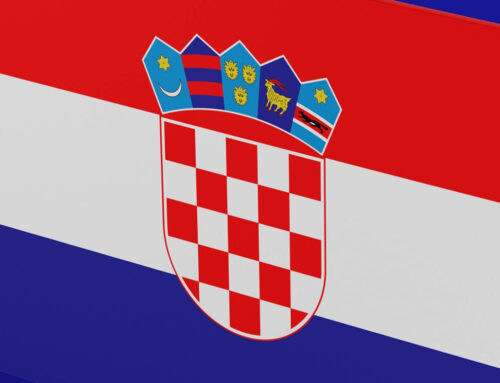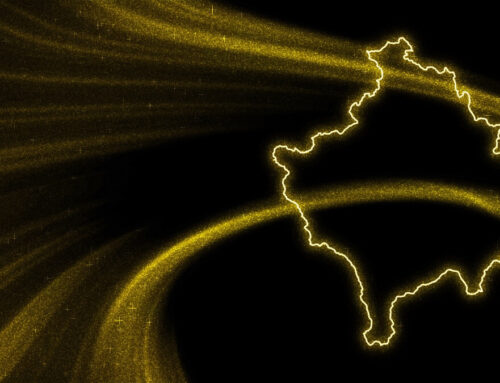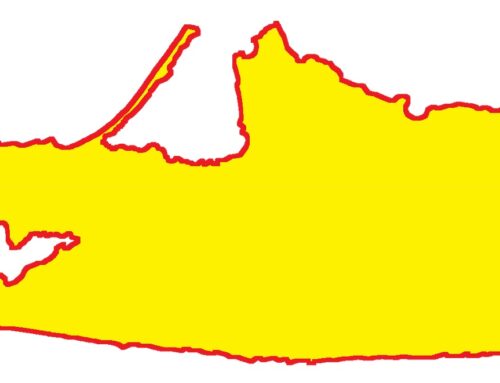“I really hope that Vucic and Thaci shake hands after the end of the summit, and show to the world that the Balkans can be just as civilized as the two Koreas.” (Bulgarian PM Boyko Borissov)
EU – Western Balkan Summit was held in Sofia (Bulgaria) on May 17th. Political leaders have met in this format last time in 2003, so the expectations from this Summit were set up quite high. It was indeed labeled as one of 5 key events this year and a huge chance for the Balkans. However, problems emerged even before the official invitations were sent. Firstly, EU countries that do not recognize Kosovo as a sovereign state did not approve the idea that Kosovo will get the same treatment as all countries. On the other hand, the final Declaration was also under the big question mark – what will be written? Will it include strong promise for the EU perspective for Balkan countries or not? In the end, who will sign it?
Serbia
For Serbian media outlets, the main question in the days prior to the Summit was why Serbia is taking a part when Spain is not. This was, in fact, just partially true. Yes, Spanish PM Mariano Rajoy declined an invitation to participate in the official part due to his country’s position on Kosovo. However, it is reported that he was present during the informal dinner the night before and that he did have meetings on the Summit’s sidelines (e.g. with Bulgarian PM Borissov).
Moreover, it was announced in the media that Romania and Cyprus will follow the example of Spain. However, the list of participants in the end did include Mr Anastasiades (president of the Republic of Cyprus), Mr Iohannis (president of Romania) and Mr Garcia-Berdoy (Ambassador Extraordinary and Plenipotentiary, Permanent Representative of Spain to the European Union). The presence of Slovakian PM Pellegrini and Greek PM Tsipras was not in question.
Nonetheless, President Vucic had to explain to the public the reasoning behind the decision to be a participant at the Summit. He has managed this by emphasizing that Spain, as a member of a club (read: EU) can afford not to be present. Unfortunately, Serbia cannot do the same because it is not a club member and all powerful politicians that will determine Serbia’s economic and political future will be there, so he must too. Another reason was the support that Serbia got from Bulgaria in the past, which does not let it ‘stab Bulgaria in the back’ by not showing up.
President Vucic has said, and Serbian media reported, that Serbia will give its best to find a solution for ‘Kosovo issue’, but that success does not depend only on Serbia. He has shown The Brussels agreement and stated that Serbia has fulfilled everything promised (points 7-14), but that points 1-6 are not implemented (Kosovo’s obligations).
One of other expectations from Serbian side was the end of roaming charges for Western Balkans countries, but that did not happen.
Kosovo
On the other hand, Kosovo is also not very satisfied with the position it is in. Constant remarks that its participation is a threat to Summit’s success or postponing of the date when Kosovo will be able to apply for the position of candidate is not making anyone happy. President Thaci stated that Kosovo has fulfilled 95 benchmarks, ratified the demarcation agreement with Montenegro and had meetings with EU officials, so he expects visa liberalization to happen this year. Some analysts, however, claim that this is not probable. According to them, Kosovo will not become a candidate country soon, because it is focused on a dialogue with Serbia, as well on the Stabilization and Association Agreement, and it does not fulfill political or even formal criteria.
President Thaci did take part in official part of the Summit. What he asked once again was the same treatment for Kosovo as other countries have and visa liberalization. He also stated that Kosovo is ready to take part in a final phase of dialogue that should result with a legally binding document, an agreement that will ensure normalization of relations and reconciliation. Currently present barriers have to disappear, including difficulties with documents recognition, visas and long waiting lines at the borders. Rules have to be same for all, Thaci claimed.
The Declaration
The final Declaration is one pretty vague document, that reconfirms Balkans’ EU perspective (but does not really precise when), emphasizes the importance of democracy, rule of law and regional stability (all usual values and goals) and basically says Western Balkans countries and EU should cooperate on all levels. There is also an Annex to the Declaration, a List of Priorities. This is a bit more to the point document that presents us a list of tasks that should be implemented. However, there are no deadlines or repercussions mentioned anywhere.
Probably the best summary of a disappointment by the adopted documents we can find in an article published by Balkan Insight. ‘What the Sofia Declaration should have said’ in short states the following: Political politeness and vagueness will take us nowhere – taking responsibility and changing modus operandi could.
Conclusions
In the end, it is quite early to see positive change made by EU-Western Balkans Summit. A lot of bilateral meetings have been held (Serbia – Sweden, Serbia – Austria, Kosovo – Denmark etc.), informal and formal sessions, press conferences, etc. If political leaders do claim responsibility, maybe this Summit does leave a trail. Next Summit should be held in 2020 in Croatia.
EU Delegation in Serbia published a short report on the Summit and as the first ‘most important result’ put the fact that PMs and presidents of EU counties and leaders of 6 Western Balkans partners were gathered at the same place. If that is the biggest result of the first Summit in 15 years, the situation is obviously not really prosperous and we need to understand and accept reality. Being civilized as two Koreas is a suitable description that reminds us of a facade democracy we live in, a comparison no one really wants to be part of.
On the other hand, EU has to comprehend it too – although people in Western Balkans do understand that their countries are not ready for EU membership and that EU has to transform and prepare itself first, as French President Macron said, they feel tricked. EU membership is a ‘carrot’, which kept them going for 15 years now. It is highly unlikely that the same promise will be enough for much longer. People are tired of promises – they need real improvements and changes.
To finish on a positive note – we heard also one good news during the Summit. Macedonian PM Zaev stated that Macedonia and Greece have finally reached an agreement over the name issue. Consensus is yet to be reached, but this would mean a big change (to better) in the Balkan relations.
Sources:
English language
https://europeanwesternbalkans.com/2018/03/26/pristinas-attendance-sofia-summit-problem-rajoy/
https://europeanwesternbalkans.com/2017/12/29/year-chance-balkans-5-key-events-2018/
http://www.balkaninsight.com/en/article/what-the-sofia-declaration-should-have-said–05-18-2018
http://www.intellinews.com/no-plan-b-for-western-balkans-eu-future-tusk-says-141832/
https://europeanwesternbalkans.com/2018/05/17/live-sofia-eu-western-balkans-summit/
Participants http://www.consilium.europa.eu/media/34810/list_of_participants.pdf
http://www.balkaninsight.com/en/article/eu-meets-the-western-balkans-what-not-to-expect-05-16-2018
Serbian language
https://www.slobodnaevropa.org/a/samit-bugarska-kosovo/29135612.html
Declaration and Annex http://www.consilium.europa.eu/media/34809/sofia-declaration_sr.pdf
Albanian language
http://www.dw.com/sq/d%C3%ABshton-samiti-i-sofjes-p%C3%ABr-shkak-t%C3%AB-kosov%C3%ABs/a-43696359
https://www.koha.net/arberi/85369/samiti-i-be-se-per-ballkanin-perendimor-drejt-deshtimit/




